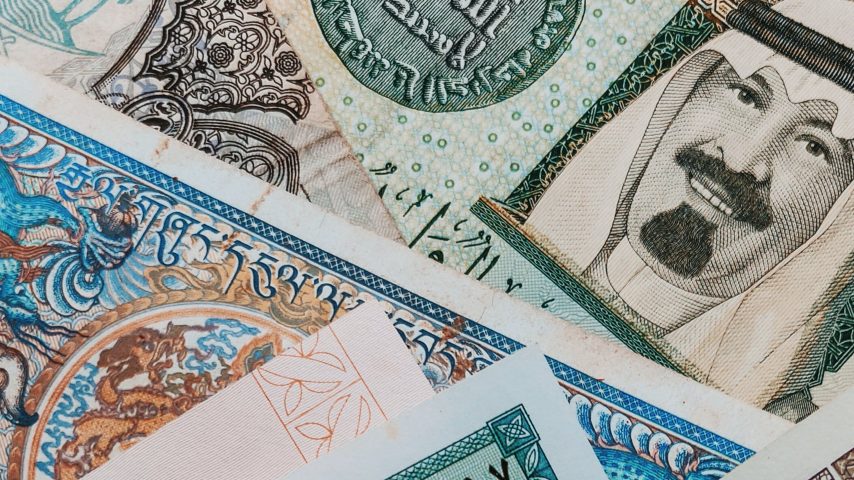
Dubai Metro Stations
October 31, 2023
Important Dubai Numbers
November 2, 2023The United Arab Emirates dirham (AED) is the official currency of the country and is divided into 100 fils. Dirham banknotes come in various denominations and are widely used in the country, which boasts a diverse economy, with a focus on oil, tourism, and financial services. The dirham is pegged to the United States dollar (USD) and is regulated by the Central Bank of the United Arab Emirates. It’s a stable and secure currency, widely accepted in the Gulf region and for business and financial transactions in the UAE.
Some important points about the UAE dirham include:
Notes and coins: Dirham banknotes come in various denominations, such as 5, 10, 20, 50, 100, 200, 500, and 1,000 dirhams. There are also coins available in different values, including 1 dirham, 50 fils, 25 fils, 10 fils, and 5 fils.
Exchange rate: The exchange rate of the United Arab Emirates dirham varies in relation to other currencies, like the United States dollar (USD). The exchange rate can fluctuate based on global economic conditions and the country’s monetary policies.
Tied to the dollar: Up until 1973, the United Arab Emirates used the Gulf Rupee as its currency, which was linked to the Indian Rupee. However, in 1973, the United Arab Emirates adopted the dirham and pegged it to the United States dollar (USD). This dollar parity is a significant characteristic of the UAE’s currency.
Economy and tourism: The United Arab Emirates boasts a diverse economy, with a focus on sectors like oil, tourism, trade, and financial services. The dirham is widely accepted in the country, and the UAE is a popular destination for tourists from around the world, making the dirham a frequently used currency.
Security: Dirham banknotes in the United Arab Emirates are designed with high security features to prevent counterfeiting. They include advanced security elements like holograms, watermarks, and other protective measures.
Monetary policy: The United Arab Emirates dirham is issued and regulated by the Central Bank of the United Arab Emirates, which is responsible for maintaining the stability of the currency and implementing monetary policies.
Commemorative coins
The United Arab Emirates releases special coins to celebrate significant moments such as important events, anniversaries, exhibitions, and special dates. These coins are made for collectors and often feature unique designs, special materials, and commemorative details. Here are some examples of commemorative coins issued by the United Arab Emirates:
Expo 2020 Dubai: In 2021, the United Arab Emirates launched special coins to celebrate Expo 2020, a world exposition held in Dubai. These coins usually had designs related to the Expo’s theme and were available in different denominations.
UAE Federation Anniversary: On special occasions, like the anniversary of the formation of the United Arab Emirates Federation, commemorative coins are issued. These coins often feature portraits of prominent leaders of the country or national symbols.
Sporting Events: The United Arab Emirates also issues commemorative coins related to sports events, such as the FIFA World Cup. These coins typically showcase designs related to the sport and competitions.
Cultural and Historical Themes: Other commemorative coins may be issued to highlight cultural, historical, or religious themes important to the country. For example, some coins may celebrate the Al Dhafra Festival or Eid festivities.
International Partnerships: The United Arab Emirates may also issue commemorative coins in collaboration with other countries. These coins can celebrate diplomatic relations, trade agreements, or other collaborative events.
It’s important to note that commemorative coins are usually produced in limited quantities and can hold significant numismatic value for collectors. They are typically not intended for everyday circulation but rather for preserving special historical or cultural moments. The availability and specific details of commemorative coins may vary over time, so interested collectors should keep an eye on the United Arab Emirates government’s updated issuances and may seek guidance from numismatic experts.
Currency misuse – violations and penalties
Using money improperly, like making counterfeit bills, money laundering, or engaging in shady financial activities, can get you in a whole lot of trouble. The consequences for misusing money can vary depending on where you are, but here are some common examples:
Counterfeiting: Making or using fake money is a big no-no. Depending on how serious it is and where you are, you could face fines or even time in jail. It’s usually treated like fraud or forgery.
Money Laundering: This is all about making illegally gotten money look clean. Penalties can be tough, including fines, jail, or both. How bad it gets often depends on how much money is involved and how tricky the money laundering scheme is.
Dodgy Financial Deals: Doing financial stuff that breaks the rules, like running unlicensed financial services or helping out with illegal transactions, can lead to criminal charges and penalties.
Tax Tricks: Misusing money to avoid paying taxes, like hiding income or pulling off sneaky tax stuff, can lead to fines, penalties, and jail time. Tax authorities are usually on the lookout for tax evasion.
Structuring Transactions: This is when you make lots of small cash deposits or withdrawals to avoid rules meant to stop money laundering. It can get you into hot water with investigations, losing your assets, and legal penalties.
Moving Money Across Borders: Breaking rules about how much money you can take in or out of a country can mean your cash gets seized, and you might face legal consequences.
Fake or Stolen Money: Using fake or stolen money, whether you knew it or not, is against the law. If you’re caught with fake or stolen cash, you could face criminal charges.
The penalties for money misuse can be all over the map, depending on where you are, how much money is involved, how big the operation is, and your history with these kinds of issues. To get the full picture, it’s a good idea to check out the laws and rules in your specific location. If you’re facing possible charges related to money misuse, getting advice from a lawyer is a smart move.





